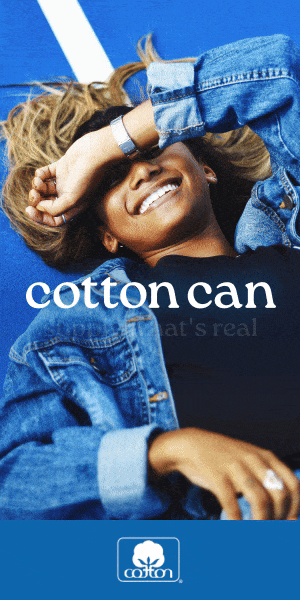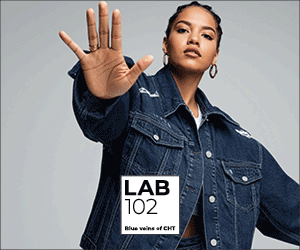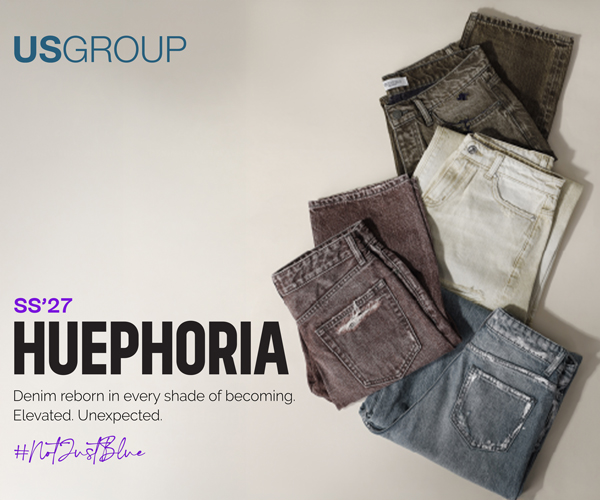Andrew Olah: Bad behaviour plagues the industry and we don’t think it’s right

The Transformers Foundation’s first in-depth report identifies why brands, retailers and importers felt they could walk away from their commitments to denim suppliers during the pandemic, and puts forth actionable solutions to enact long-term change. Founder Andrew Olah says we now have a rare window of opportunity to fix the power differential.
What prompted you to write this report, what were you hoping to find out?
There were many people involved in bringing our first annual report, “Ending Unethical Brand and Retailer Behaviour: The Denim Supply Chain Speaks Up,” to life with a special thanks to our co-authors, Marzia Lanfranchi, intelligence director at Transformers Foundation, and Alden Wicker, sustainable fashion journalist. Speaking as the Transformers Foundation, we as a group wanted to record with data, what happened during the initial months of the pandemic, so that we could make actionable recommendations on what to do about it in the future. We believe environmental issues are crucial, but the crisis has exposed how deep the cracks in the supply chain go.We all knew what was going on and what has been plaguing our industry for decades, so nothing happened that we didn’t know about. But, we wanted to record it and substantiate it, and make suggestions on how to improve things in the future. We have a rare window of opportunity to fix the power differential that allowed brands, retailers, and importers to walk away from their contracts with suppliers without almost any consequence. So, more than just enforcing contracts, we hope to build ethics and care into an industry that right now seems to have very little of either.
Why is it important and did anything surprise you?
I don’t think any of us were surprised by anything that we discovered. What we wanted to do was to understand the situation with facts, and conduct as much research as we could, in order to determine what needed to be done to solve the problem. We must transform the denim industry to share profits and risks fairly across the supply chain.
Some of the points in the report paint a grim picture of buyer behaviour. What was the most shocking thing you heard of? And to balance that, can you tell us an example of something that stood out as being good?
What could be more shocking than having a signed contract and walking away from it? But this behaviour has been going on in our industry for 25 years and was the logical conclusion of a two-decade run of consolidation of power into the hands of multinational retailers, growing overcapacity in denim and jeans manufacturing, a colonialist attitude from buyers toward suppliers, and a lack of legal or moral accountability in the industry.
So I don't think I was shocked by it. I don't think anybody in the foundation was. We did it so that we can enact some sort of solution to the problem and to reconfirm what we already knew was going on.
There were many examples of good behaviour. But I think it's really important to understand what we're talking about here. We're talking about two companies that make a contract: one is to buy it, and one is to sell. Historically, if a seller doesn't deliver what they're supposed to or they are late, for example, they're supposed to fly it in, and if they don't deliver it accordingly, they are penalised for it. On the other hand, there has never been any real consequence for the buyer if they don’t hold up their end of the contract. So, as you know, the buyers, in many cases, either asked for reductions or didn't take their goods or cancelled them all together. But, these are all things that they've been doing for a long time. And we don't think it's right.
Suppliers told you they want a ‘true and equal partnership’ in the chain – how far away from that are we?
I don't love the word partnership. Unless the suppliers are engaging in sharing the profits of the brands, which I don't think the brands have any plan on doing, it's not a very clear partnership. I think it is a buyer-seller relationship that is maintained equally on both sides, that everyone is looking for. The suppliers are only asking for one thing - if you place an order, could you please take it? Imagine you ordered a refrigerator from Macy's and all Macy's asked is that you take it? It's not such a big ask.
What reaction have you had to your Calls to Action and #EthicalizeDenim campaign?
We have had an amazing reaction to our Calls to Action and #EthicalizeDenim campaign and are reaching out to suppliers one by one to accept our Eight Ethical Principles for The Purchasing of Jeans & Denim. This Code of Conduct is much like the 10 Commandments in a sense - be honest, tell the truth, respect one another - and as of December 10, we had 14 companies that absolutely endorse what we believe in. We are seeking between 50 and 100 endorsements in the supply chain and once this has been accomplished, we will approach different brands and retailers and say, “About 50 or 70 members of the supply chain believe these Eight Ethical Principles are reasonable. Do you think this is okay for you to accept as well and endorse?” We believe they’re going to say, “sure.”
What would be the most important change that you would like to see?
I would like to see negotiations that please both parties. There are always going to be problems, but the secret to business is how you deal with each other. It's just like in life with your family. It's easy when everything's going great, but the real essence of human survival is during a crisis. It is during problems that people collaborate, work together, and find resolutions that work out for both parties. Whether that is dealing with your children, your grandchildren, your uncles, your customer, or your supplier.
Everybody should be able to change anything they want, whenever they want, but they should do it with approval, and with a buy in from the person that they're dealing with. And if that happens, we don't have any problems. These are moral dilemmas that have nothing to do with business. It’s just decency.
What can we expect next from the Transformers Foundation?
You can look for our upcoming webinar on cotton in Transformers Foundation’s series, The Truth, on January 12. We want to unpack the misconceptions and the misuse of cotton data and global average figures, debunk some of the myths on water consumption, pesticide use, and shed a light on data on yield. Following this, we are also working on a cotton report that will be released in 2021.
You can register for “Cotton Claims: The Good, The Bad, and The Nuanced” here.
Andrew Olah has worked in textile development and marketing since 1976. Olah Inc has grown to a full-service textile company focused on the denim industry under Andrew’s guidance. He created the Kingpins Show in 2004 and the show now hosts editions in New York, Amsterdam, Hong Kong and China. Two new initiatives came about as a result of Covid-19: Kingpins 24, an online digital platform, and Kingpins Exchange, a digital textile marketplace. Non-profit entity Transformers Foundation launched in 2020 and is committed to “creating, implementing and sharing the changes that need to happen in the jeans industry”.













